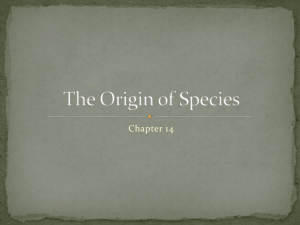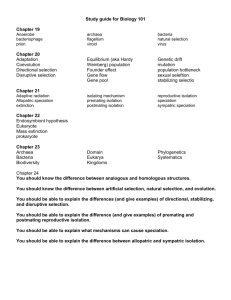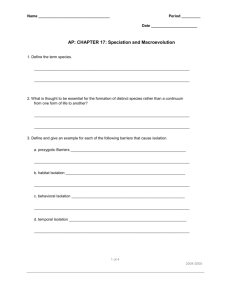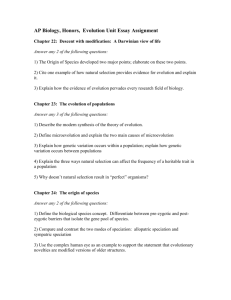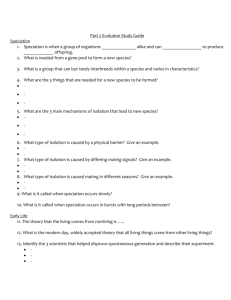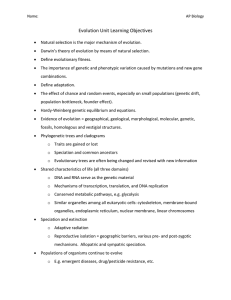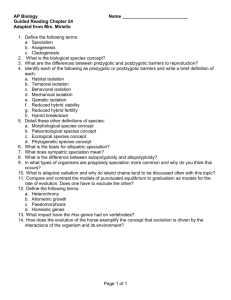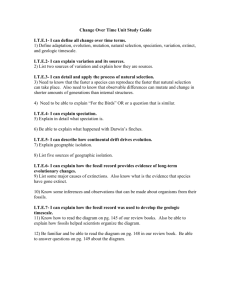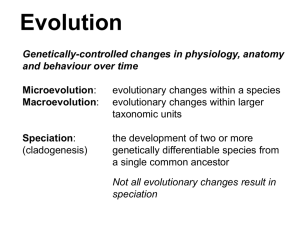Mechanisms of Speciation
advertisement
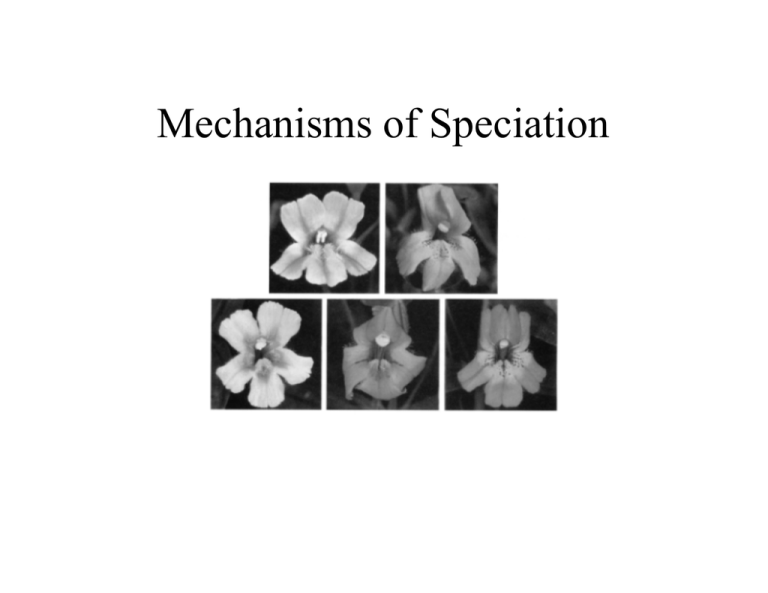
Mechanisms of Speciation Speciation • • • • Species concepts Mechanisms of Isolation Mechanisms of Divergence Secondary contact Speciation • All species on earth thought to share single common ancestor – That is life arose once, ca. 3.8 bya • Speciation is the generation of species level diversity • What processes lead to genetic differences sufficient to create a new species? What is a species? • Biological species concept – Reproductive isolation, no genetic exchange – Textbook definition, Mayr 1942 – Widely used by zoologist, and by legal acts • But what about: – forms that do not meet – Asexual organisms like bacteria – Many plants with extensive hybridization Asexual bacteria: what is a species? Genetic traits can be passed across very distantly related bacteria. E.g., antibiotic resistance genes spread widely. Phylogenetic species concept • Emphasis is on evolutionary monophyly • Monophyletic groups – Group of taxa that contain all descendents of a common ancestor • Here D and E could be same species – But E and J cannot – Unless A through J are Morphological species concept • If it looks like one….then it is one • Usually only concept available for fossils Morphological species or not? Does this really matter? • The United States legal definition of species comes from the Biological species concept – Reproductive isolation – No gene flow Groups do not usually qualify for federal protection unless they are considered valid species or subspecies All species concepts • Genetic isolation important to all concepts – Heart of Biological Species Concept – If isolation were not there, at least mostly, then • Phylogenetic concept becomes difficult to apply – Gene flow would make monophyly gene dependent • Morphospecies no longer morphologically distinct – Hybrid gene flow could swamp out morphological differences Process of speciation • Isolation – Physical barriers - allopatry • Dispersal • vicariance • Divergence – Drift – Natural or sexual selection • Sometimes secondary contact – Hybridization • Reinforcement • Fusion Allopatric speciation • Allopatry: not in the same place – Divergence occurs in geographically separated groups • Some physical barrier to migration of alleles from one population to another • Initial separation of populations could be – Dispersal – vicariance Allopatric models Dispersal and colonization • Example, Hawaiian Drosophilidae – Over 500 species in 2 genera • Founder hypothesis predicts – closely related species on adjacent islands – Phylogeny should correspond to island ages Hawaiian island chain Other sort of ‘islands’ • Basins; Mountain ranges Vicariance example Genetic barriers - polyploidy • Changes in chromosome number • Individuals with different karyotypes reproductively incompatible • Important mechanism in plant speciation – Perhaps 43% of dicots; 58% of monocots descended from polyploid ancestors – NOT 43% and 58% of speciation events
